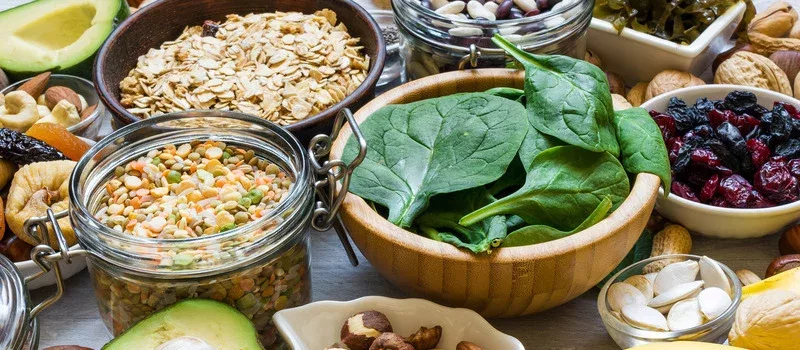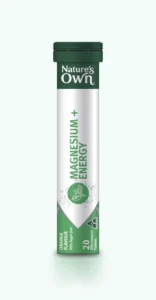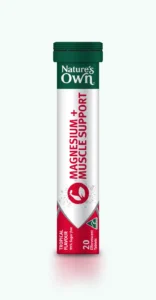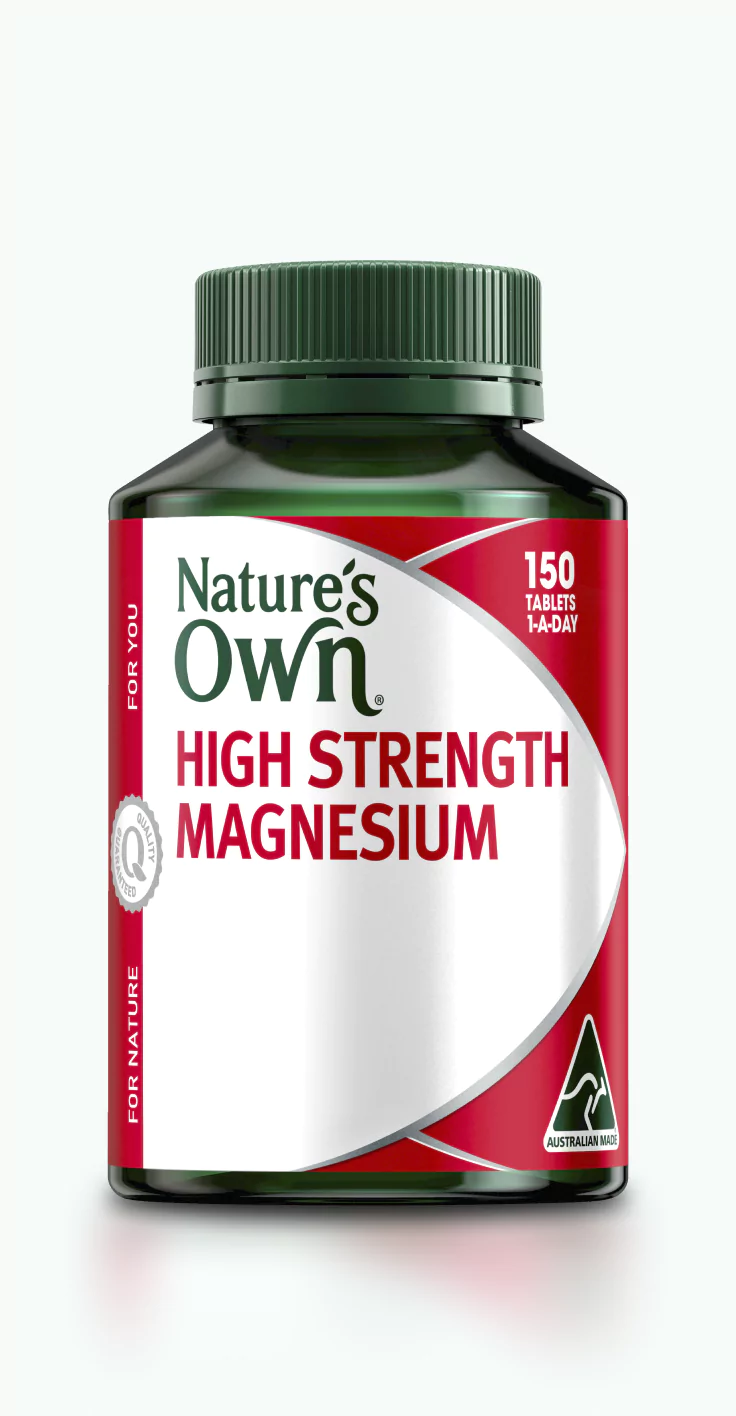
Beat Muscle Cramps: Understanding Causes, Actions to take, and the Potential of Magnesium
In this article
Muscle cramps can affect an entire muscle group, a single muscle in your body or select muscle fibres and while the specific causes of cramps are not well understood, they often depend on your individual lifestyle and health factors.1
Common causes of muscle cramps can include:2
- Tight, inflexible muscles
- Being out of shape and poor muscle tone
- Poor diet
- Physical exertion of cold muscles
- Muscle injury or fatigue
- Dehydration
- Wearing high heels for a long time
Common types of muscle cramps
Heat-Associated Muscle Cramping
Heat-associated muscle cramping often occurs during sports or vigorous exercise due to large losses of sweat and electrolytes. Staying hydrated during sports helps replace fluids lost by sweating, especially during the summer heat.
Nocturnal Leg Cramps
Leg cramps at night, affect some of the population. The pain is usually relieved by stretching the muscle and while the exact cause is unknown potential causes include standing a lot or exerting great physical effort during the day.
Exercise-Induced muscle cramps.
Cramps linked to exercise occur during or after physical activity. They may result from dehydration and electrolyte imbalance or a nervous system response to increased activity.
Period cramps
Period cramps, or dysmenorrhea, are the crampy pain associated with a woman’s menstrual cycle. Other symptoms may include nausea, vomiting, headaches and fatigue. Period cramps not linked to an underlying medical condition (like endometriosis) are thought to be caused by biochemical reactions during a woman’s cycle. Higher levels of prostaglandins, hormone-like substances made by the body, at the time of menstruation, are thought to contribute to period cramps.1
Reducing your Likelihood of Muscle Cramps
There are steps you can take to reduce your likelihood of getting muscle cramps and the good news is, these steps benefit your overall health:2
- Increase your physical fitness.
- Stretch every day to keep your muscles warmed up and active.
- Warm up and cool down properly when you play sports or exercise.
- Drink plenty of water before, during and after exercise and increase your water on hot days.
- Eat plenty of fruit and vegetables to get the nutrients your muscles need.
- Book a regular massage to help ease tight muscles.
- Avoid high heels and make sure you wear properly fitted shoes.
When should you get help for your muscle cramps?
If your muscle cramps are frequent or last longer than a few minutes or if they regularly disrupt your sleep and daily activities speak to your healthcare practitioner for advice.
Muscle cramps and Magnesium
Muscle contractions and cramps could be a symptom of magnesium insufficiency. Magnesium absorption decreases as we age, further increasing the risk of insufficiency.[3] If you’re dealing with regular muscle cramping speak to your healthcare practitioner about whether you need to increase magnesium in your diet or through supplementation.
Can you get magnesium in a supplement?
Magnesium is available in supplement form, and you can find it in a tablet, capsule and powder. For more information on the Nature’s Own range of magnesium products click here .
References
[1] Bordoni B, Sugumar K, Varacallo M. Muscle Cramps. [Updated 2023 Aug 4]. In: StatPearls [Internet]. Treasure Island (FL): StatPearls Publishing; 2024 Jan-. Available from: https://www.ncbi.nlm.nih.gov/books/NBK499895/
[2] Better Health Channel (2012). Muscle cramp. [online] Vic.gov.au. Available at: https://www.betterhealth.vic.gov.au/health/conditionsandtreatments/muscle-cramp.
[3] Souza ACR, Vasconcelos AR, Dias DD, Komoni G, Name JJ. The Integral Role of Magnesium in Muscle Integrity and Aging: A Comprehensive Review. Nutrients. 2023; 15(24):5127. https://doi.org/10.3390/nu15245127
Related Products
Related Articles

How to cope with mild knee pain
Knee pain is a very common condition affecting approximately 19% of the population. Knee pain is slightly more prevalent in women with twenty percent of women affected and 15-20% of men presenting with knee pain. The incidence of knee pain increases steadily with age.

Magnesium: What is it good for?
Magnesium is vital for more than 300 of your body’s metabolic reactions including synthesizing proteins, the function of muscles, nerve conduction and supporting healthy blood glucose.


